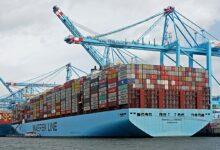
10 Factors Affecting Money Supply in Nigeria
Factors Affecting Money Supply in Nigeria – Money, being the bane on which economic development is measured is very important for the growth of a nation’s GDP. For trade and investments to be possible in Nigeria, the use of money is very important and in order to fully understand the concept behind why money is not supplied adequately in the country, it is of great necessity that we take a close look at certain facts that surrounds this challenge of insufficiency. This article defines money, discusses the benefits of having a cash supply, and describes how money is distributed in Nigeria. Find out how the nation’s economy is impacted by the money supply and what influences it.InformationGuideNigeria
Read Also: 10 Factors Affecting Reproductive Health In Nigeria
👉 Relocate to Canada Today!
Live, Study and Work in Canada. No Payment is Required! Hurry Now click here to Apply >> Immigrate to CanadaDefinition of Money
Money is a widely used form of exchange that can be used to pay for goods and services as well as to settle debts. Typically, it takes the form of physical money like coins and paper bills or electronic money like bank transfers or digital wallets. Money serves as a standard for deferred payments, a unit of account, and a store of value. It is frequently supported by a government or other central authority and used to make transactions between people and businesses easier.
Definition of Money Supply
The total amount of money that is readily accessible in an economy at any given time is referred to as the money supply.Factors Affecting Money Supply
This includes both tangible forms of money, like coins and banknotes, as well as digital ones, like the money kept in savings and checking accounts. Central banks and governmental organizations frequently measure the money supply, which is influenced by a number of variables such as interest rates, economic growth, and inflation.
Read Also: 10 Factors Affecting Trade Union In Nigeria
Advantages of Money Supply
The Nigerian economy heavily depends on the availability of money. It has an impact on interest rates, inflation, and overall economic growth. Inflation and deflation are both caused by changes in the amount of money in circulation. To manage the money supply and preserve economic stability, the Central Bank of Nigeria establishes monetary policy. The money supply can also affect the naira’s exchange rate and the overall volume of foreign investment in the nation. 15 Best Industries in Nigeria
Money supply has a number of benefits, such as:
- Money serves as a medium of exchange, making trade easier by facilitating the exchange of goods and services.
- Supplying a store of value: Saving money allows for the future purchase of goods and services.
- Serving as a unit of account: The common measure of value provided by money makes it simpler to compare the costs of different goods and services. 20 Best Gas Cookers Pictures and their Prices in Nigeria
- Lowering transaction costs: By removing the need for bartering, money lowers the costs associated with trade.
- Using monetary policy, central banks can control the money supply and maintain economic stability during periods of inflation or recession.
- A stable money supply can contribute to increased economic growth, which can lower poverty.
Read Also: 10 Factors Affecting Inter-group Relations In Nigeria
How Money is supplied
Governments and central banks supply money using a variety of methods, such as printing paper money, minting coins, and producing digital money. Additionally, fractional reserve banking allows private banks to produce money. In fractional reserve banking, private banks are allowed to lend out the remaining deposits to generate new money while still being required to hold a specific percentage of deposits as reserves.
👉 Relocate to Canada Today!
Live, Study and Work in Canada. No Payment is Required! Hurry Now click here to Apply >> Immigrate to CanadaNigeria’s money supply can be broken down into two components, the first of which is the currency that is either in circulation or on the reserve bank’s books. The second term is M1 and M2, which, respectively, refer to the money supply’s currency and non-currency components.NYSC Portal
Demand deposits, time deposits, and savings deposits are all included in the M1 measure of non-currency deposits at commercial banks, corporate depositories, and other depositories. All current coins, banknotes, credit or debit cards used for everyday purchases, as well as prepaid cards, are included in the second measure, known as M2. The monetary policy of a nation takes form shape as a result of this development; it begins by deciding how much money will be injected into the market by altering the money supply (Walsh & Gelburd 2014).
Read Also: 10 Factors Affecting Press Freedom in Nigeria
Factors Affecting Money Supply in Nigeria
The Nigerian money supply is influenced by a number of factors, including:
-
CBN’s Decision:
Decisions made by the Central Bank of Nigeria (CBN) regarding monetary policy, such as modifications to reserve requirements or interest rates.JAMB Portal
-
Budget Deficits:
The amount of money that the Government spends as well as budget deficits, which usually leads to the accumulation of more debt often leads to the increase or decrease of money available.
-
Currency Exchange rates:
Fluctuations in currency exchange rates, as changes in the naira’s value can have an impact on the amount of money in circulation.JAMB Result
-
Inflation:
Economic expansion and inflation are related because rising economic activity can increase the money supply while rising inflation can reduce it.
-
Investments:
The volume of both domestic and international investment in the nation has a huge influence on the supply of money in the country..200 romantic love message for her
-
Remittance:
The volume of remittances that are done internationally by Nigeria affects its economy, this in turn affects money supply in the country.
-
Transactions:
How much is deposited into or withdrawn from a financial institution often plays another part in the supply of money within the country.105 good morning messages
-
Foreign Debts:
The extent of foreign debt accrued by the country also affects how much money is supplied within the country.
-
Political and social stability:
Political and social unrest can result in a drop in foreign investment and a shrinking of the money supply.
-
Natural catastrophes:
Because fewer goods and services are produced and traded as a result of natural catastrophes like floods, earthquakes, and droughts, the money supply is reduced.
Read Also: 10 Factors that least Influence Population Density in Nigeria
Conclusion
In conclusion, a number of variables, including monetary policy decisions made by the Central Bank of Nigeria, government spending and budget deficits, changes in the value of the local currency, inflation and economic growth, trade balances, remittances, banking and financial sector policies and regulations, and political stability, can have an impact on the money supply in Nigeria. For making wise financial decisions and for understanding the overall health of the Nigerian economy, it is crucial to comprehend these variables and how they interact.
Check JAMB Result
Check and Confirm: How much is Dollar to Naira





